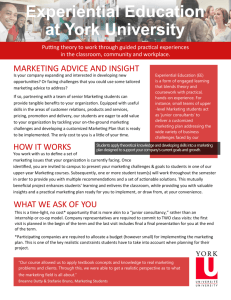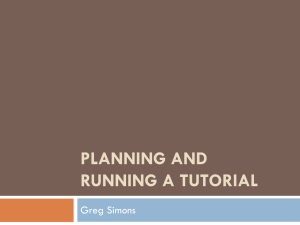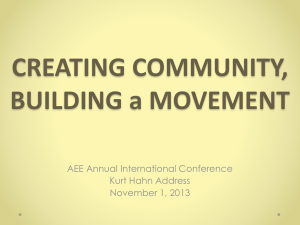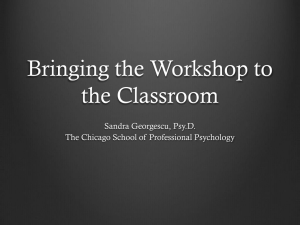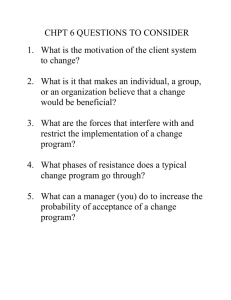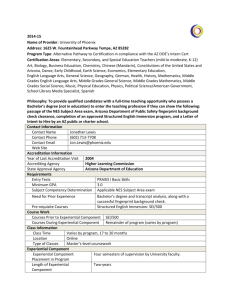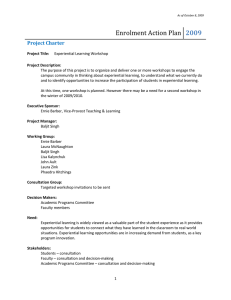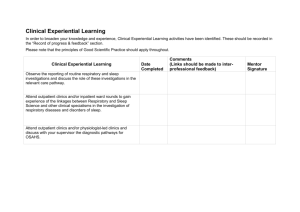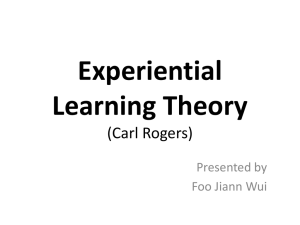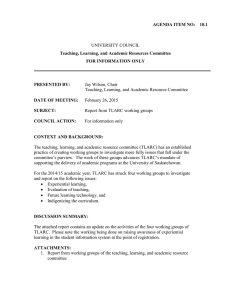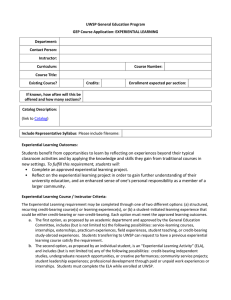Learning Through Play
advertisement
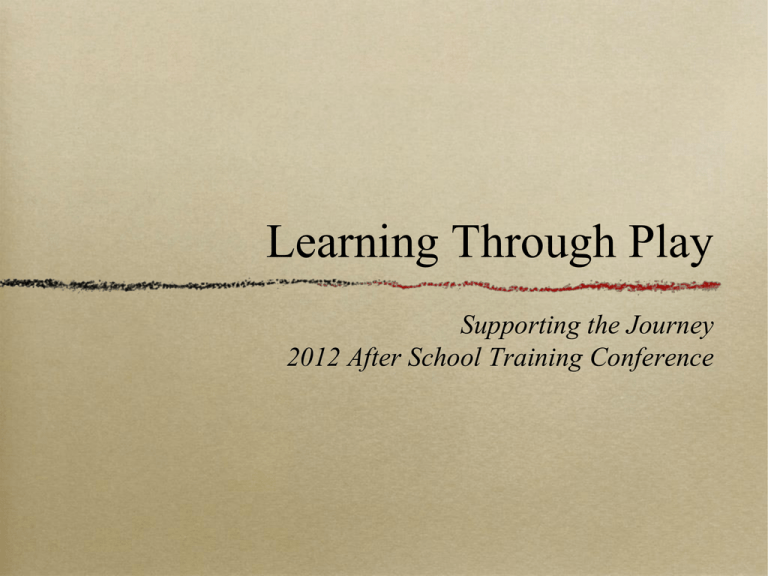
Learning Through Play Supporting the Journey 2012 After School Training Conference Cooperation Strategies & Skills Tell A story about your childhood and play Who did you play with? What did you do? What did you play with? Where did you spend most of your time playing? How supervised were you? Qualities of Play EXPERIENTIAL LEARNING… • Happens all the time • Is a natural way to learn • Experimentation • Exploration • Example • Empathy INFORMAL EXPERIENTIAL EDUCATION • Harnesses the natural power of EL • Is a formal way to support learning • Can be a playful way to address learning standards and skill building Unstructured Free Play = Experiential Learning Child-led (can have adult participation) Independent and nonscreen Promotes intellectual, physical, and emotional well-being Helps children learn how to: negotiate, resolve conflicts, regulate emotions & behavior, and speak up for themselves Builds active, healthy bodies Fosters empathy and creativity Provide toys & materials that stimulate imagination Recognized by the UN Convention on the Rights of the Child: Article 31: “recognize the right of the child to rest and leisure, to engage in play and recreational activities appropriate to the age of the child...” Unstructured Free Play Examples Climbing, running, jumping, tumbling, exploring, biking, walking, tag, skipping Looking at and “reading” books, playing with puzzles, blocks, musical instruments Creating make-believe worlds, with dress-up clothes, pots and pans, toy cars, and art materials Indoors or outside Alone or with others Guided Play = Experiential Education Adult facilitated Contributes to child’s development Is voluntary and frequently involves choice Can have a point or lesson Involves everyone without elimination Allows children to learn and practice skills Tends to be cooperative rather than competitive Creates shared Experiences Offers opportunities at each person’s skill level Examples of Guided Play Musical Games Games such as “follow the leader” or “Simon says” Problem solving activities Scavenger hunts Ice Breakers Square or line dancing Skill builders Cooking Blue Jellybeans • Eager • Shocked • Ecstatic • Shy • Embarrassed • Silly • Energetic • Smart • Enraged • Smug • Envious • Strong • Excited • Surprised • Exhausted • Suspicious •What does [word] mean? •How does it feel to be [word]? •What happens to make you feel [word]? •How can you tell someone might be feeling [word] by looking at them? Summary • Unstructured free play allows children to learn experientially • Supports social, emotional, physical, and cognitive development • The main adult role is to keep children safe Summary • Guided play is a form of experiential education that taps into a natural way to learn • Can be used to teach skills and content. • The main adult role is to facilitate learning through processing and reflection. Ideas for Your Program • Schedule time for free play • Be intentionally spontaneous • Play with students • Explore • • Add playful activities to concepts and skills students need to learn Notice instead of judge or value Laurie Frank GOAL Consulting www.goalconsulting.org Experiential Education Expeditionary Learning Outdoor Pursuits Adventure Based Counseling Experience Based Training and Development Simulations Inquiry Internships Art, Play, Music, Drama Therapies Environmental Education Service Learning Adventure/Challenge Education And more…
